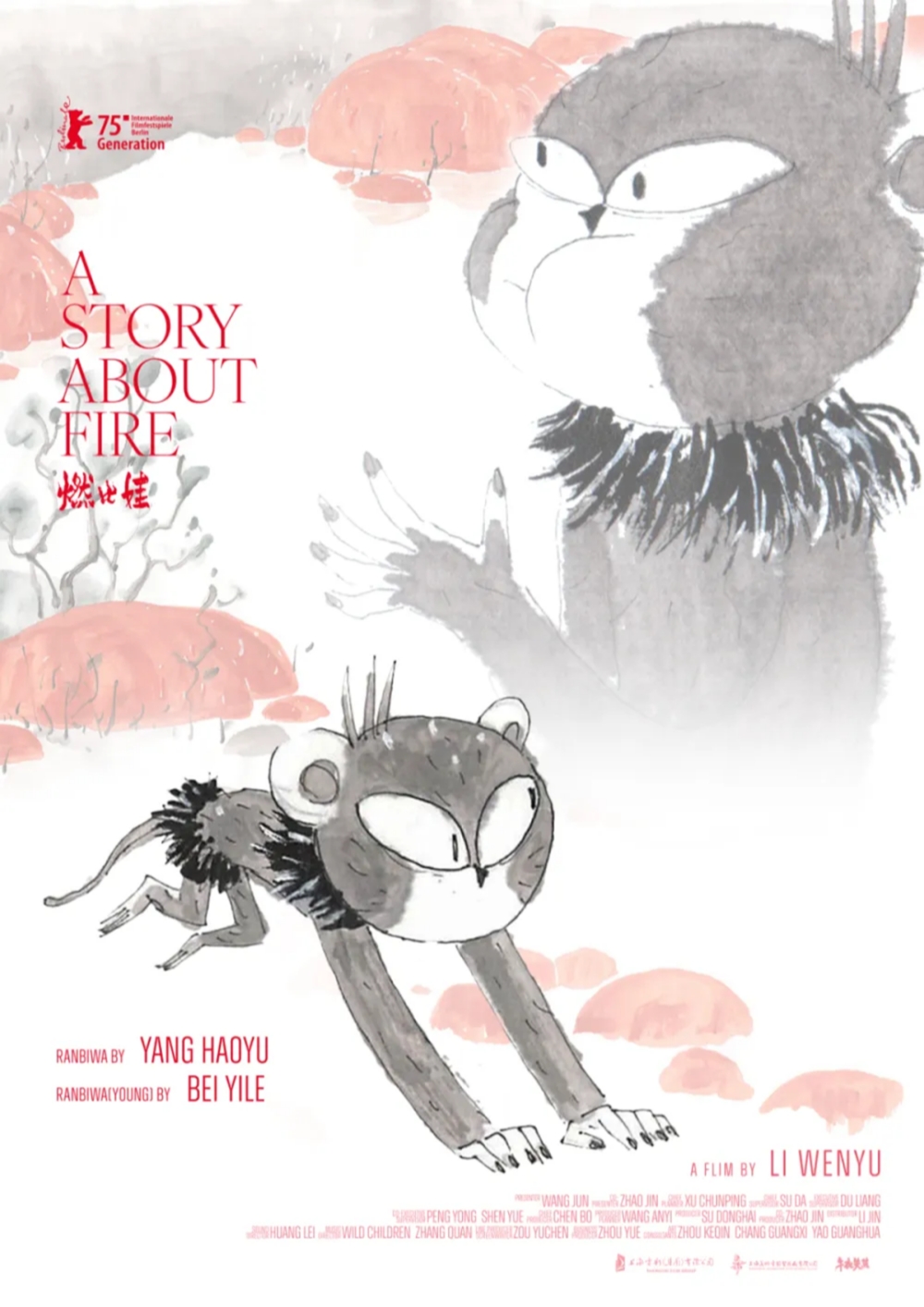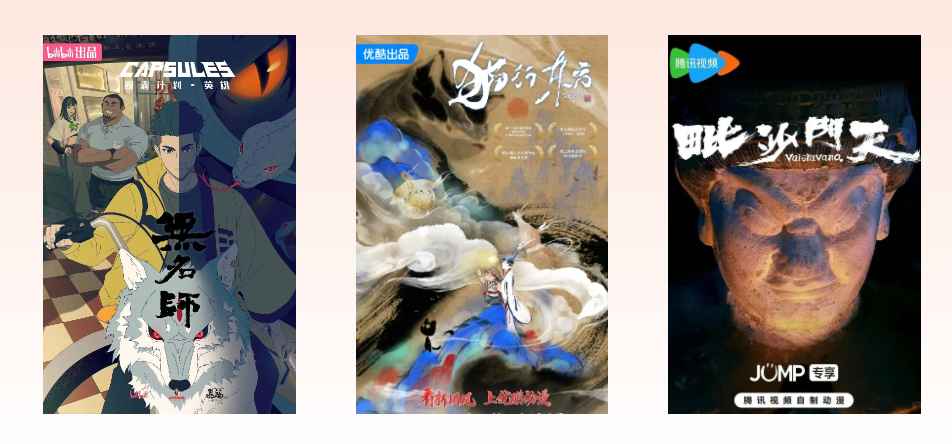
While "Nezha" continues to upgrade and set new records on the international film box office charts, another Chinese animated film has also embarked on its journey of "going overseas".
Shanghai Animation Film Studio's new film "Ranbiwa" made its world premiere at the Berlin Film Festival on February 18. Directed by Li Wenyu, the film tells the story of a monkey who grew up in a human tribe and followed in the footsteps of his mother Awubaji, who went through hardships to snatch fire from the mouth of the "beast of fear" and finally achieved nirvana.
In the 1980s, Shanghai Animation Film Studio produced various animations that were frequent guests at international film festivals. The 1982 film "Three Monks" and the 1984 film "The Snipe and the Clam" were both shortlisted for the Berlin Film Festival. Director Li Wenyu is a senior animator at Shanghai Animation Film Studio and studied under the famous animation director of the older generation, Ma Xuan.
In "Ranbiwa", Li Wenyu boldly tried to combine traditional Chinese ink painting with modern experimental animation techniques, incorporating various art forms such as comics, decorative paintings, and collages to create a visual style that is both oriental and modern. The film took four years to create, and received support from many domestic and international awards, including being selected for the WIP unit of the Annecy International Animation Festival in France.

Poster of "Ranbiwa"
The story of "Ranbiwa" is inspired by the Sichuan Qiang folk legend "Ranbiwa Stealing Fire". The Qiang area is very scattered, distributed in the deep mountains of the southwest and northwest. Because there is only language but no writing, the ancient legends are passed down by word of mouth. The process of this little monkey stealing fire and gradually becoming a human explores the origin and spiritual power of human civilization, and is also a beautiful story about courage and growth, love and companionship.
Director Li Wenyu went deep into the local Qiang ethnic group to collect folk songs and communicate with experts to obtain interpretations of the legend of Ranbiwa in different regions. Based on the original myth, he broke through tradition, started from exploring the possible truth behind the legend, combined with his own experience, and focused the story on growth, companionship, love and emotion.
Recently, the film also released the dubbing lineup. Zhou Xun voiced the female leader "Awubaji", Yang Haoyu voiced the adult Ranbiwa, Bei Yile and Kang Chunlei voiced the young Ranbiwa and the dog respectively.

Poster of "Ranbiwa", Zhou Xun voices the female leader "Awubaji"
At its premiere at the Berlin Film Festival, "Ranbiwa" won warm applause from the audience with its unique narrative style and exquisite pictures.
Director Li Wenyu said in an interview with Deep Focus that he hopes to inspire the audience to explore the possibilities behind the legend through Ranbiwa, and at the same time arouse the importance of love and companionship in modern society. In the future, Shanghai Animation Film Studio will continue to promote the diversified development of Chinese animation and bring more works with both artistic value and cultural depth to global audiences.


